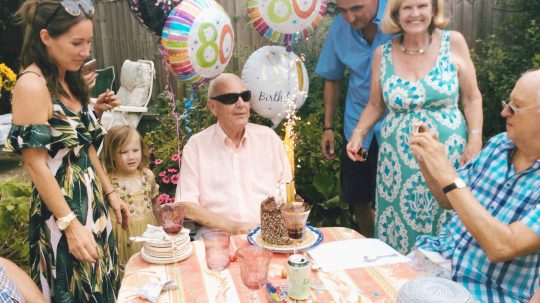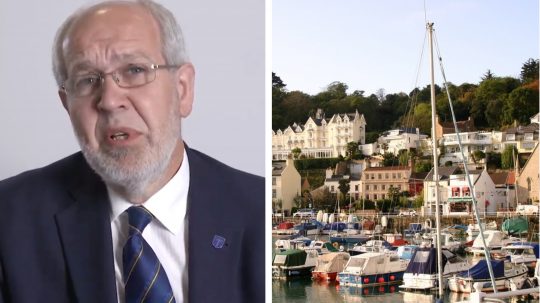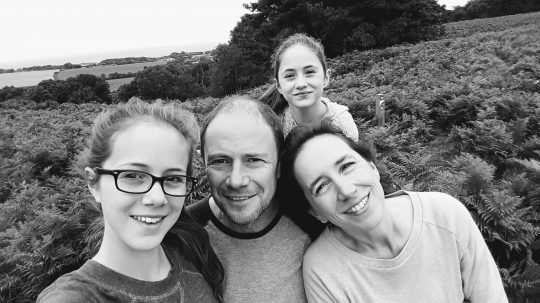
Phil Newby: Before I was diagnosed, we lived a really busy life. We were just normal people, we built the house that we're sitting in now, we'd rarely stopped. I was diagnosed five years ago. And it came to me a little bit out of the blue.
Charlotte Newby (Phil's wife): I did have a suspicion that it was going to be motor neurone disease. I didn't really believe that until we were told. And then it was like being hit by a bus.
Phil Newby: I was told by the neurologist, she told me that I had a matter of months at worst to live, some years at best. The disease is progressing, thankfully, very slowly. But the things that I can do inside the house or outside the house gets smaller and smaller. The options available to me, as I see them, is that one, I can take my own life. At this stage, if I wanted to take my own life, I'd have to take it before I was totally incapacitated, and do it in a way that wouldn't incriminate my family. Another option, of course, which is well known is you can go abroad for a dignified and compassionate death. The third one is just to let the disease take its course. We would like to overturn the blanket ban on right to die in this country because we believe it contravenes my own human rights.
Charlotte Newby: People with terminal conditions or people who are incurably suffering, are made to continue living when they don't want to, because they cannot seek assistance to end their lives at a time that they want to. Phil does not want to end his life now. He is still enjoying life. But I think that with a condition like his there could be a point in the future where enjoyment and pleasure in life is eclipsed by pain and fear and anguish. By giving people choice, it means that they know that they don't have to endure years of suffering. They know that they will have a choice to bring that to an end, when they wish. It's as simple as that.












